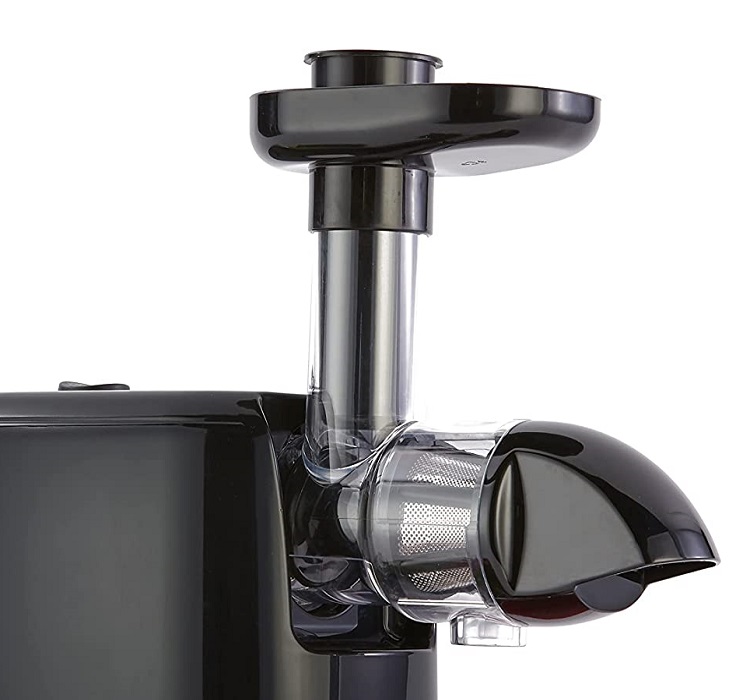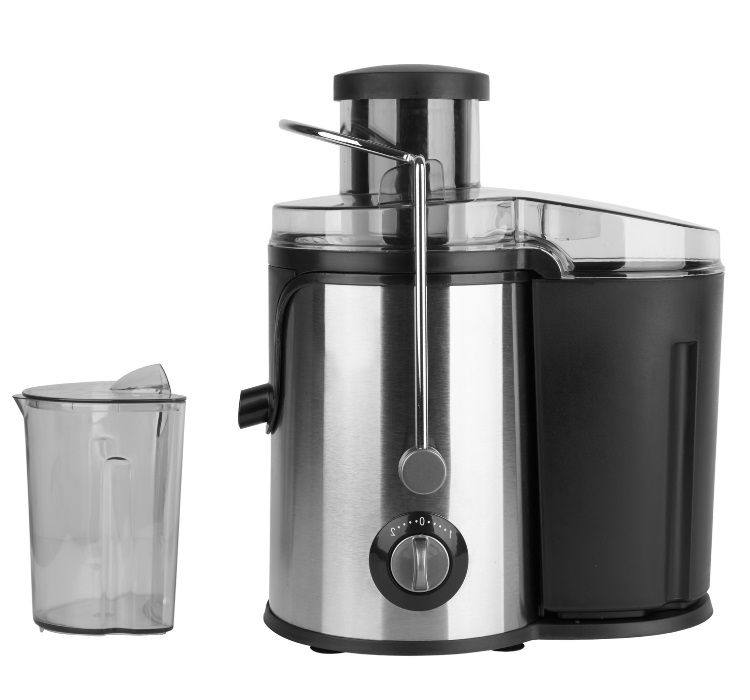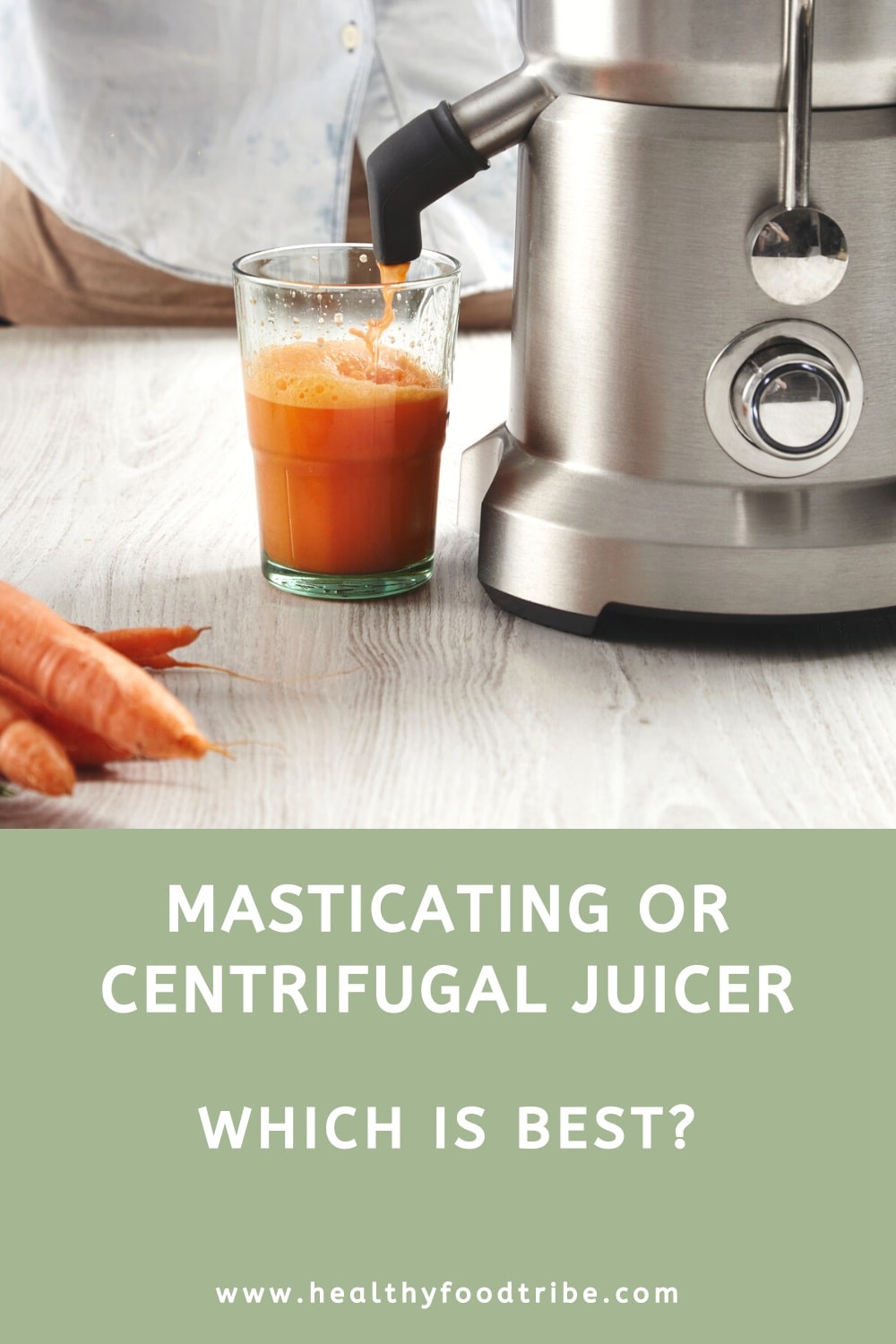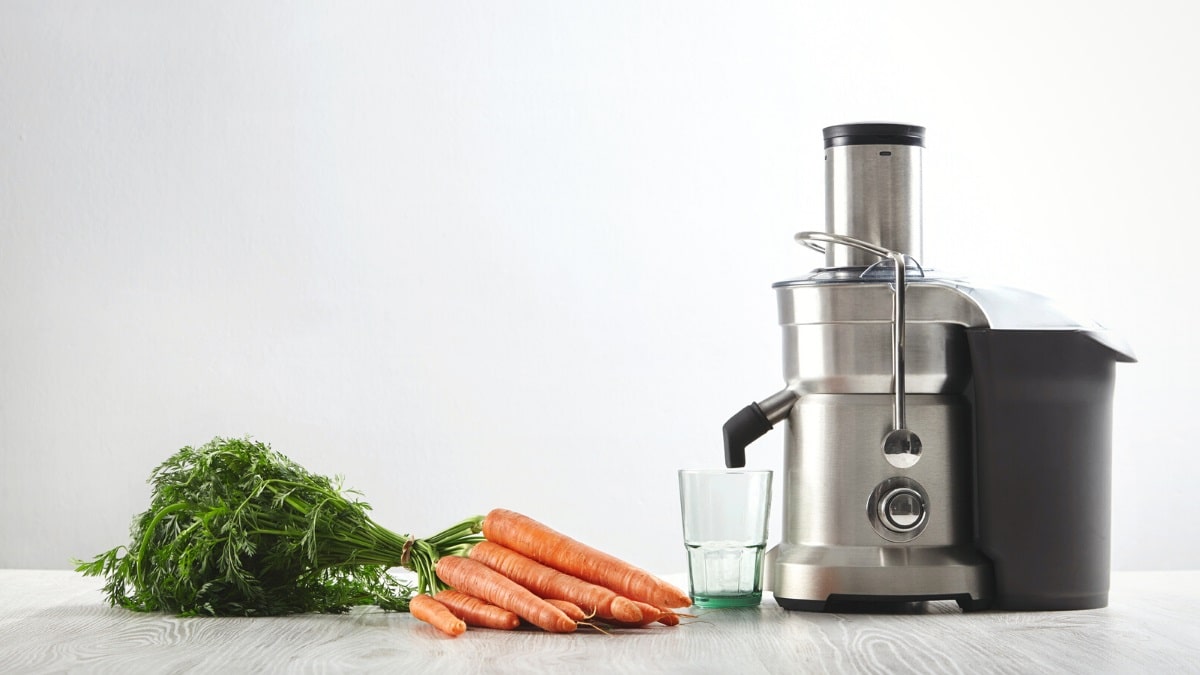I may earn a small commission from purchases made through product links on this website at no extra cost to you. As an Amazon Associate I earn from qualifying purchases.
Last updated: February 20, 2024
A detailed comparison guide explaining the differences between masticating and centrifugal juicers, plus recommendations for best buys.
One would think that buying a juicer is as easy as looking at prices and reading reviews, but the world of juicers is much more complicated than that.
Masticating juicers and centrifugal juicers are the two most popular types available, but they function and perform very differently.
Let’s find out what the differences are between a masticating juicer and a centrifugal juicer so you can work out which type of juicer is best for you.
Quick navigation:
What Is a Masticating Juicer?
Also known as slow juicers, masticating juicers use a single gear (otherwise known as an auger) to crush your produce into pulp before extracting the juice.
This masticating process breaks down the cell walls of fruits and vegetables, resulting in more nutritious juice and less pulp. Mastication essentially means grinding, chewing and crushing.
In general, there are two types of masticating juicers:
- Vertical masticating juicers
- Horizontal masticating juicers
The main difference between these two is the amount of space they claim on your kitchen counter.
Vertical masticating juicers are typically more expensive because of the way they are designed, but they don’t necessarily perform better or worse.
Top selling masticating juicer:
- Cold Press Slow Juicer: This juice maker machine operates at a slow 43 RPM and...
- Max Flavor & Nutrients: This electric juicer uses Slow Squeezing Technology...
- High Yield: Equipped with a dual-edge auger with a tighter fit tolerance, this...
What Is a Centrifugal Juicer?
The most common and most popular type of juicer is the centrifugal juicer. They are typically more affordable than masticating juicers.
Centrifugal juicers use a cutting blade to chop the fruits and vegetables before spinning at high speed. The centrifugal force then separates the juice from the pulp. The juice and pulp end up in two different containers.
The centrifugal mechanism generates heat, which can have a negative impact on the amount and quality of the nutrients in the produce you are juicing.
There are typically two types of centrifugal juicers:
- With external container
- Without external container
The ones with an external container are usually more expensive, but the extra investment is certainly worth it.
The extra container makes it easier to juice in large batches, and you can also use the container to store the nutritious pulp for later use.
Top selling centrifugal juicer:
- The Breville Juice Fountain Elite lets you embrace the power of professionals; A...
- UNIQUE EXTRACTION SYSTEM: The Breville juicers titanium reinforced disc and...
- SHORT PREP TIME: The Breville juicer machines unique 3 inch extra wide chute...
Masticating vs Centrifugal Juicer
Let’s dive a little deeper into the most common differences between masticating and centrifugal juicers.
1. Juice Yield
One of the most important things to consider when selecting a new juicer is the actual juice yield. In other words, how much juice can a specific juicer get out of fruits and vegetables?
Typically, masticating juicers achieve a higher juice yield than centrifugal juicers. You will often see that the pulp left behind by a masticating juicer is very dry. That’s a good thing because this means more juice has been abstracted.
The pulp left behind by a centrifugal juicer is usually a bit more wet, meaning there is still juice left behind in the pulp. Realistically, though, the difference in juice yield is usually not that ground-breaking.
2. Quality of Juice
Masticating juicers are known to produce better quality juice than centrifugal juicers. The juice made by a good masticating juicer is entirely free from any foam and pulp. In other words, the juice is very pure.

Another thing to consider is that centrifugal juicers introduce oxygen into the juice that they produce. This process of oxygenation results in a shorter shelf-life for your juice, which means you can’t store it for too long.
3. Speed of Juicing
Centrifugal juicers are definitely faster than masticating juicers. The centrifugal mechanism simply requires less time than the masticating process.
But in the grand scheme of things, a few more seconds, or even minutes, doesn’t really make much of a difference in a day.
4. Heat Generation
A centrifugal juicer generates heat, whereas a masticating juicer does not.
Some argue that this heat can negatively impact the nutrients and that the juice produced by a centrifugal juicer is less nutritious.
While I’m not a scientist, I personally don’t believe the impact is all that big.
5. Leafy Vegetables
A masticating juicer is better able to deal with leafy vegetables than a centrifugal juicer.
If you’re planning to not only juice fruits but also vegetables, a masticating juicer may be the better choice for your juicing needs.
6. Versatility
Most people would use a juicer just to create simple juices. But did you know that a good quality masticating juicer can also prepare nut butters and sorbets?
Personally, though, I would prefer to use a powerful blender to create things like nut butter and soups, as the results are much better.
But all things considered, a good quality masticating juicer can do much more than just create fruit and vegetable juices.
7. Noise Levels
Centrifugal juicers definitely generate more noise than masticating juicers do because of the centrifugal mechanism. A masticating juicer is actually very quiet and pleasant to use in that regard.

So, if kitchen noise is an issue for you, then this aspect is something to consider when choosing between a masticating and a centrifugal juicer.
8. Cleaning
The general consensus is that masticating juicers are a bit harder to clean as their design is a bit more complicated, with different parts that need cleaning.
However, juicer manufacturers understand that ease of use is important, and easy cleaning is part of that. If cleaning a specific juicer is a pain, nobody is going to want to buy that juicer.
In other words, while it may be true that it takes a bit longer to clean a masticating juicer than it takes to clean a centrifugal juicer, you would find it difficult to find a masticating juicer that is a pain to clean.
9. Price
Masticating juicers are usually pricier than centrifugal juicers. This is because the design of a masticating juicer is more advanced, and the juice is generally better quality with less pulp and less oxidation.
This is not to say that the juice produced by centrifugal juicers is bad. Quite the opposite; good centrifugal juicers can make excellent juice if you set the right expectations.
So, if you have the budget available and want the best quality juice, it’s definitely worth investing in a masticating juicer.
Conclusion
Let’s summarize this comparison between masticating and centrifugal juicers so you know which type is best for you.
Pros of masticating juicers:
- Better juice yield
- Better quality of juice
- Better suitable for leafy vegetables
- Longer shelf-life for juices
- Quiet operation
Pros of centrifugal juicers:
- Usually much cheaper
- Easy to clean
- Faster performance
Happy juicing!



